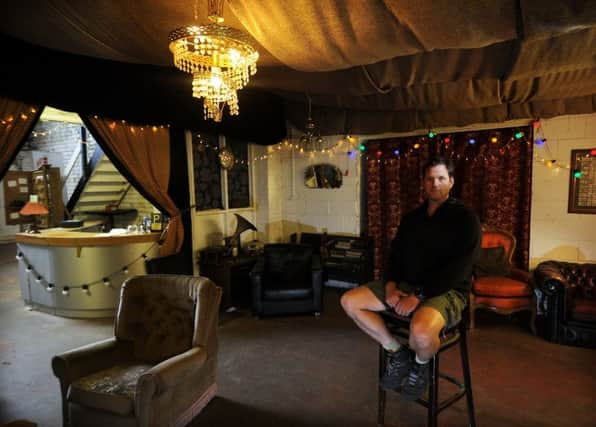How Leeds scheme shows bringing culture to the masses is within reach: Alan Lane


Public money is given to arts organisations and artists to provide arts in ways and places and forms that the market might not support.
For 70 years as a nation we have committed to what should be the non-contentious idea that the best of artistic experience shouldn’t just be for the rich. But of course, it is contentious. What makes up “the best”? How do you decide that? Who decides that?
Advertisement
Hide AdAdvertisement
Hide AdDoes it keep track with current trends or race ahead with innovation? And for a long time, the watch word has been “excellence”. Excellence is funded and supported.
But today marks a change – a new vision by the Arts Council for the next 10 years.
Alongside that contentious excellence will be a focus on creative people – everyone having the chance to be creative – and creative communities, with a great focus on the many different places that people live and placing culture within literal and social reach.
Now the watchword “relevance” joins “excellence” and big changes are ahead.
Advertisement
Hide AdAdvertisement
Hide AdBut these changes will not come as new at all for many people living in Yorkshire – for many it will look like a return to a way of valuing culture that they’ve known all their life. I know this because just over a year ago the theatre company I work for, Slung Low (funded by the Arts Council for seven years now), took over the oldest working men’s club in Britain – the Holbeck.
Under our management the bar continues, bingo reigns supreme on a Sunday evening and there’s an epic Christmas raffle: all those glorious elements of culture we found when we were invited in still remain but alongside that there is more.
A visiting theatre show plays the club every Sunday at 5pm. The Cultural Community College offers courses all year round in everything from bread baking to Irish dancing, from blacksmithing to fire eating.
And, alongside family festivals and outdoor activities, a regular cabaret brings in hundreds of south Leeds residents who come to enjoy the finest magicians, drag queens, comedians, poets and bands that the Arts Council subsidy can provide.
Advertisement
Hide AdAdvertisement
Hide AdEverything here at the club (apart from the beer) is Pay What You Decide – the audience pay after the event on the way out.
Sometimes, when they haven’t had much to do with a social club before, people ask “how do the members cope with the new stuff?” But we know that it isn’t new, just returning, newly found.
When the Holbeck was created in 1877 it was a lecture hall and a games room. The bar (like as with so many social clubs) would come decades later.
When it was first imagined and then created, the Holbeck was a place to go to be entertained and to learn. It was first imagined not as a pub but, as the pioneer Joan Littlewood would come to imagine in the 1960s, as a fun palace.
Advertisement
Hide AdAdvertisement
Hide AdA place, owned by the community, where folk could come together to see the best that the current culture and arts and learning could offer.
It is part of a clear-eyed vision of national culture that isn’t solely for those who can afford to meet in shiny gleaming buildings in the city centre but a lived, every-day, accessible, owned cultural life.
What we’re doing at the club isn’t a new venture but a return to its roots: a social community space, home to art and culture and education, open to all, used by many.
This new strategy by the Arts Council can clearly be read as a blueprint for something that we had in great number but lost in all but the pockets of the nation where it survives: lone clubs managing to ride the waves of an aggressive market and a cultural snobbery that has too long driven the artistic identity of the nation in a purely London, posh, elitist, male direction.
Advertisement
Hide AdAdvertisement
Hide AdI choose to see it is a promise by the Arts Council that the culture of the nation will reach the entire nation; that the right to be a creative individual will be offered to every citizen and protected, regardless of their proximity to the capital; that culture – the best that can be managed – will be in your community, waiting for you.
And not just in your nearest city centre. It is a hell of a promise. It will mean real change.
But for those of us in Yorkshire it will mean a return to something we know is possible, of something that we have done before, and in some social clubs still remaining, still do every day.
Alan Lane is the artistic director of Leeds theatre company Slung Low